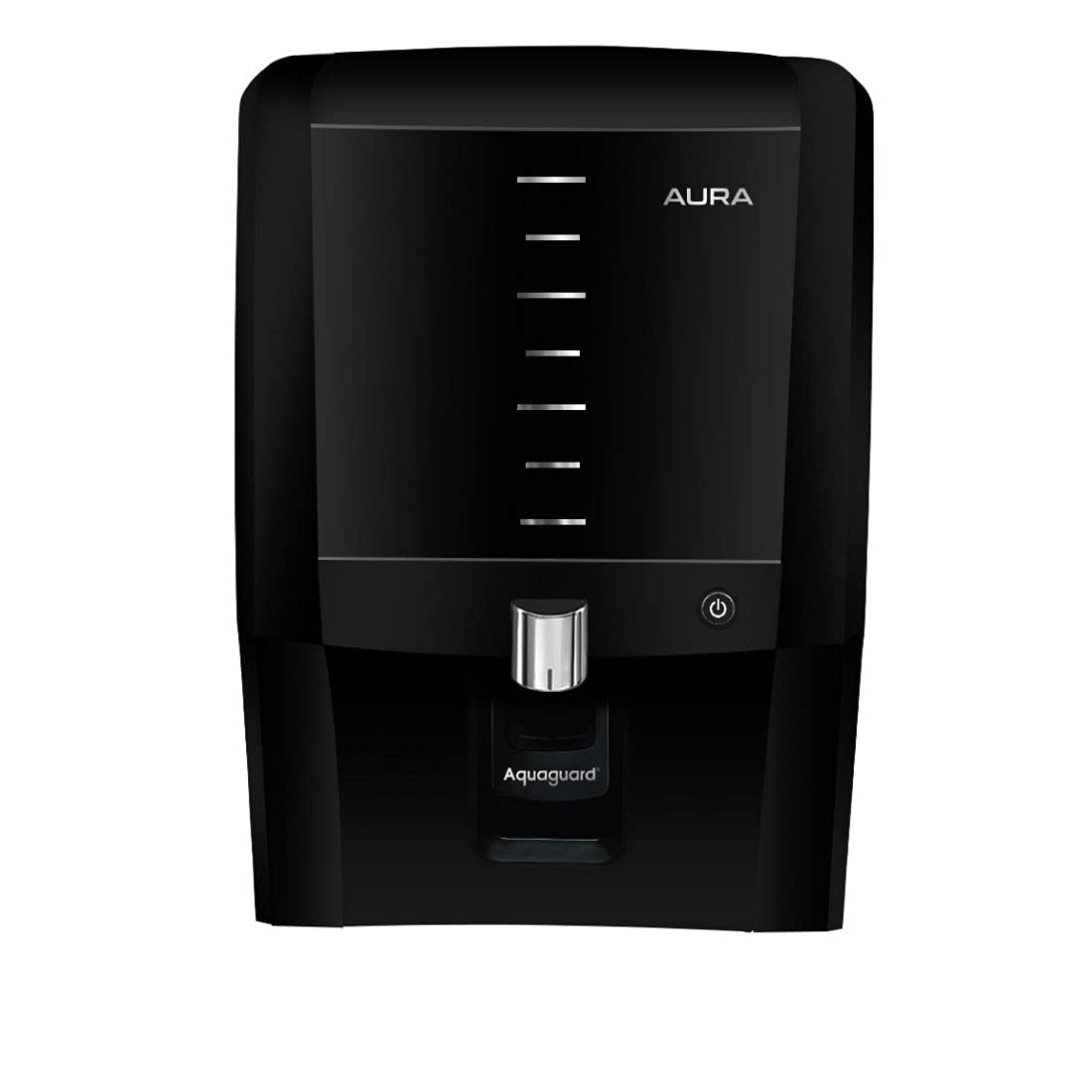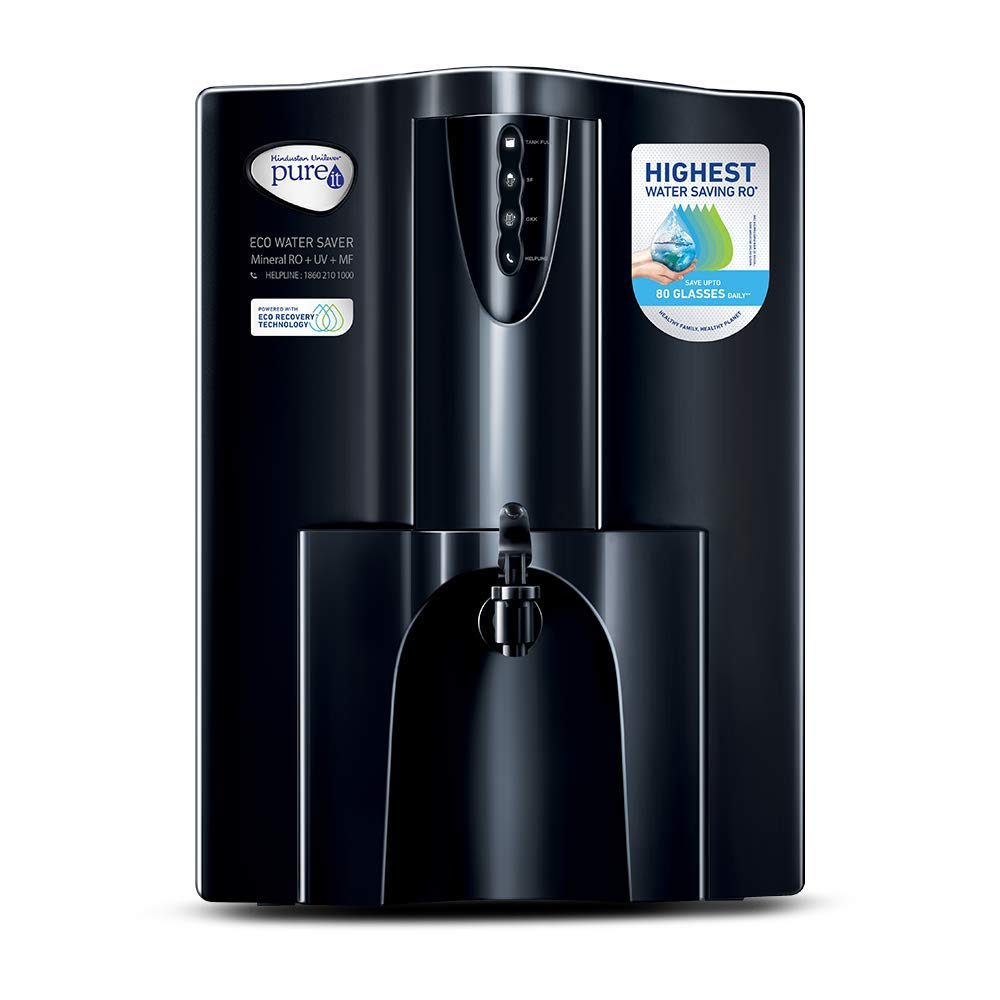A water purifier is a machine that cleans the water by removing unwanted elements and compounds from it. This can be done through a number of different methods, including filtration, distillation, and reverse osmosis.
Water purification is the process of removing undesirable chemicals, biological contaminants, suspended solids, and gases from water. Some of the common water contaminants are saltwater, insects, algae, industrial wastes, and coal dust.
Water filters make tap water into better quality water. They remove unwanted impurities from the water such as bacteria, sediment, and hardness.
Table of Contents
Water Filter Types:
Reverse osmosis (RO):
Reverse osmosis is a process that removes contaminants from water by using pressure to force the water through a semipermeable membrane. The contaminants are not as tightly bonded to the membrane and are forced out of the water. Reverse osmosis filters remove large particles and can take care of bad tastes, odors, and colors.
Reverse Osmosis (RO) has been cited as the preferred method for purifying water. RO is considered to be the most advanced filtration technology for both commercial and domestic home applications.
Water is forced under pressure through a membrane with pores so small that only water molecules can pass through it; this leaves all other impurities behind. The result is high purity water, free of oils and most minerals, including calcium, sodium, and fluoride.
Water purification by reverse osmosis involves a number of key steps: pre-treatment; membrane filtration (RO) post-treatment.
The process of reverse osmosis is used to clean tap water as well as provide clean water for drinking and cooking. Water purification is a global need as large cities have inadequate or no treatment facilities. With the growth of mega-cities such as Delhi, Mumbai, Pune, and other metropolises, RO has become an essential component in the sector to make available clean drinking water to their citizens.
The RO process can remove more than 99% of Total Dissolved Solids (TDS) from the water.
Ultra Violet Filter: UV
The UV filter is a light source that can be used for various water filtration purposes and systems such as water purifiers, air purifiers, pool water sanitizers, food safety, disinfection, etc.
Ultraviolet light has the ability to kill bacteria and viruses by inducing direct damage to their components. UV radiation can pass through plastic, glass, and other materials without any loss of intensity.
UV systems are used to provide high-quality drinking water. The UV light used in these systems is completely safe.
Absorption Filters:
Absorption filters use activated carbon which can remove a number of dissolved contaminants.
These filters are useful in the water treatment process as they treat water rapidly and efficiently, removing pollutants like chemicals, pesticides, and heavy metals. They also have minimal maintenance requirements.
Activated Carbon:
Activated carbon (AC) filter is a type of water filtration that removes chlorine, organic chemicals, pesticides, and other contaminants.
The unit combines an activated carbon filter with a standard sediment pre-filter to provide the best protection from contaminants in your drinking water.
Ion Exchange Filters:
Ion exchange filtration is a method of water purification that concerns itself with the ionic charge on particles within the water. The system exchanges ions from one solution for another.
One example of an ion exchange filter uses sodium chloride to remove dissolved calcium and magnesium from hard water by replacing them with sodium.
Mechanical Filters:
Mechanical filters use a screen or mesh to remove larger particles of matter from water. The mesh size may be large enough to catch suspended solids, but small enough to allow bacteria and viruses to pass through the filter.
Sequestration Filters:
Sequestration filters use a layer of activated carbon for the removal of contaminants. Advantages include high capacity and high flow rate, low-pressure drop, easy to regenerate, and relatively easy to install.
These filters are useful in the water treatment process as they treat water rapidly and efficiently, removing pollutants like chemicals, pesticides, and heavy metals.
Manually Total Dissolved Salts controller (MTDS) Filter:
A mechanical quality controller for removing dissolved salts from RO systems. MTDS removes very small amounts of salt (NaCl) in laboratory water purifiers and high-quality water lines using regular replacement cartridges to ensure the highest degree of purity for your system.
It is a perfect fit for Reverse Osmosis (RO) filter systems as well as other types of equipment. Most of the RO purifiers also have MTDS filters.
Ultrafiltration Method: UF
Ultrafiltration is a water purification process that uses a high-pressure pump to push water through a membrane.
The membranes are very fine and can remove particles from the water such as bacteria, viruses, algae, and minerals. The system can be used for the treatment of both drinking or waste stream water.
Ultrafiltration (UF) is a membrane filtration process that can remove particles larger than water molecules from a liquid.
4 Methods of Water Purification:
Water Boiling Method:
Boiling water makes water safe to drink because it kills any pathogenic bacteria or viruses that may be present. This is the oldest and easiest method for households. The water boiling method is good for villages where the water is not treated by the municipality. Even in cities, if you can’t afford RO purifiers you should boil the water and store it in a clean, closed container.
Water Distillation Method:
The distillation method kills bacteria & viruses by boiling water & then collecting its vapor in a different container. This water vapor contains no bacteria or viruses. However, there are two problems with this method:
1- It wastes energy as you have to boil the water and it takes a lot of time.
2- A carafe may break or crack during boiling, which will allow microorganisms to contaminate your drinking water.
Chlorination Filtration:
Chlorine kills bacteria & viruses by disinfecting water. Chlorination is required for municipal drinking water. Chlorine is inexpensive to produce and a small amount of chlorination goes a long way when it comes to protecting your health from water-borne illness.
Filtration Method:
It removes bacteria & viruses by using micro-pores in the filter. The holes are so small that only water can pass through them, but all other particles are trapped on the surface of the filter media. There are 2 types of filtration: Carbon Filtration and Membrane Filtration.
A water purifier is a machine that removes toxins and other impurities from tap water. It may use an ion exchange filter, mechanical filters, sequestration filters, or ultrafiltration to remove pollutants like chemicals, pesticides, and heavy metals. The best type of filter will depend on how you plan to use your water purifier at home or in the office.
Top 5 Best Water Purifier in India:
Aquaguard Water Purifier:
The Aquaguard Water Purifier is one of the best water treatment and filtration systems available in India, which have been designed to provide you with pure and fresh drinking water. The product has features like a multi-stage purification process, advanced RO+UV technology for an unlimited supply of healthy and pure water, and is equipped with an advanced user interface display panel.
The purifier is capable of removing up to 99 percent of the contaminants present in the impure water, such as chlorine, lead, pesticides, or any other types of dissolved solids. It uses RO + UV systems which makes your drinking water free from bacteria and germs.
Kent water purifier:
It is the most trusted brand in India. Kent water purifiers had developed trust and popularity among Indian customers with their quality products and services that continue to be unmatched to date. Kent as a company manufactures several types of purifiers for homes, offices, hospitals, and other commercial places. Each purifying product has unique features.
Pureit water purifier:
Pureit water purifier is India’s most trusted brand for gravity-based and activated carbon filter purifiers.
4 Reasons to buy Pureit water purifier:
- No Electricity Required
- Easy to Install
- Easy battery replacement
- Great Taste and Odour Removal
Eureka Forbes water Purifier:
Eureka Forbes has an impressive range of water purifiers catering to every household requirement. The products include Eureka Forbes RO Plus, Eureka Forbes Aquafresh RO and UV Water Purifier, Eureka Forbes RO+UV 5-Stage water purifier, among others.
Livpure Water Purifier:
The company specializes in manufacturing water purifiers, filter cartridges, and other products that provide pure water. Livpure is a brand associated with high-quality affordable products. The company focuses on innovation and is often praised for its unique product features.
FAQs
Which water purifier is best?
The best water purifier depends on your needs and budget. We recommend advanced RO+UV technology.
Which water purifier is good for health?
All of the water purifiers mentioned in the article are good for your health. You will be able to find detailed information on their features, quality, and other aspects in the article.
What is TDS in a water purifier?
TDS stands for Total Dissolved Solids. It is a measure of all the solids dissolved in water at a given time. The higher the TDS the “worse” the water quality.
What is the water purifier price?
Water purifier price varies from brand to brand and the type of purifier.









